The 5th of Shvat is the yahrzeit (anniversary of death) of the “Sfat Emet” – Rabbi Yehuda Aryeh Leib Alter, the second Gerrer Rebbe, 5607-5665 (1847-1905). The Sfat Emet was born in Warsaw on 29 Nisan 5607 (1847) to Rabbi Avraham Mordechai z”l, the son of the “Chidushei Harim,” the first Gerrer Rebbe. After being orphaned in his youth of his mother and father, he grew up in his grandfather’s home. After the death of his grandfather, the Sfat Emet led Ger chassidism with strength and wisdom. He was one of the prominent leaders of Polish Jewry at the end of the 19 [Read more]
The 5th of Shvat is the yahrzeit (anniversary of death) of the “Sfat Emet” – Rabbi Yehuda Aryeh Leib Alter, the second Gerrer Rebbe, 5607-5665 (1847-1905).
The Sfat Emet was born in Warsaw on 29 Nisan 5607 (1847) to Rabbi Avraham Mordechai z”l, the son of the “Chidushei Harim,” the first Gerrer Rebbe. After being orphaned in his youth of his mother and father, he grew up in his grandfather’s home.
After the death of his grandfather, the Sfat Emet led Ger chassidism with strength and wisdom. He was one of the prominent leaders of Polish Jewry at the end of the 19th century. Under his leadership, Ger chassidism became the main chassidic group in Poland.
During his 35 years of leadership, from 5630 to 5665 (1870 to 1905), the chassidic group grew greatly, and its numbers reached the tens of thousands, and they were spread out amongst hundreds of cities and towns in Poland and Russia. During this period, a glorious generation grew up, fathers, sons, and grandsons, many of whom were geniuses in Halacha, very chassidic, who were privileged to reach the highest levels in their worship of G-d. Under his watchful eye, many students and scholars with lofty spiritual aspirations grew, for whom the Rebbe warned, “Behold, the keeper of Israel shall neither sleep nor slumber” – vigilance being a necessary condition for a person who preserves his Judaism – was for them the mitzvah of their lives.
In the “note” of the chassid from Wloclawek, among other things, words that he himself heard from the mouth of the Sfat Emet were quoted: “Why did Moses explain the Torah in seventy languages, although the nations did not want to accept the Torah? But he would have dug to discover in the depths of the Torah its power, until even when the Jews of the 16th century sunk in all the lusts and evil deeds of the seventy nations, the tzaddik of the generation would be able to lift him up by the power of the Torah!” And how very worthy these words were of those who said them, and how very appropriate the words were when they came from the mouths of their doers.
Apart from the influence that the Sfat Emet radiated to his generation throughout the years, he left behind a rich spiritual legacy for future generations, his book of innovations on the Mishna, which became the eyes for all who seek the truth of the Torah, and his holy books on Five Books of the Torah and compilations. This is the foundation of chassidic thought, which fed and nourished one generation of opinion after another. And to this day, tens of thousands of Jews live from his words and thirstily drink his waters – his language, Sfat Emet, will last forever.
In Poland, before the Holocaust, there were still chassidim left who had the privilege of spending time in the shadow of the Sfat Emet. They gathered in all the towns of Poland for the yahrzeit feast on the 5th of Shvat to hear words of encouragement or an uplifting story from his teachings and to be strengthened with uplifting and holy stories.
In the Ganzach Kiddush Hashem archive, descriptions of the yahrzeit on the 5th of Shvat in the Valley of Tears were collected from the chassidim who were looking for mental strength to hold on to the connection with the Rebbe on the day of his yahrzeit and that the merits of the Rebbe would help them survive through the days of evil.
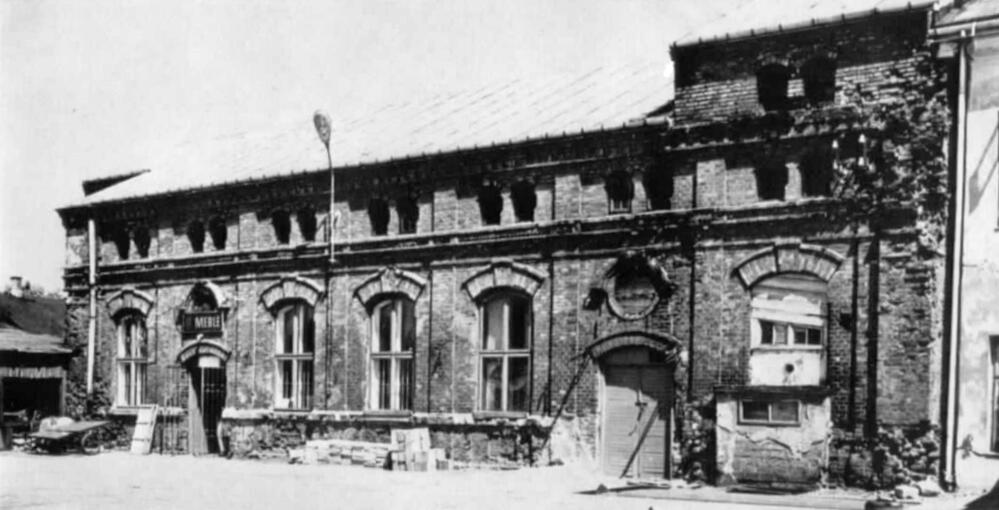
The Gerrer study hall in Gur, Poland
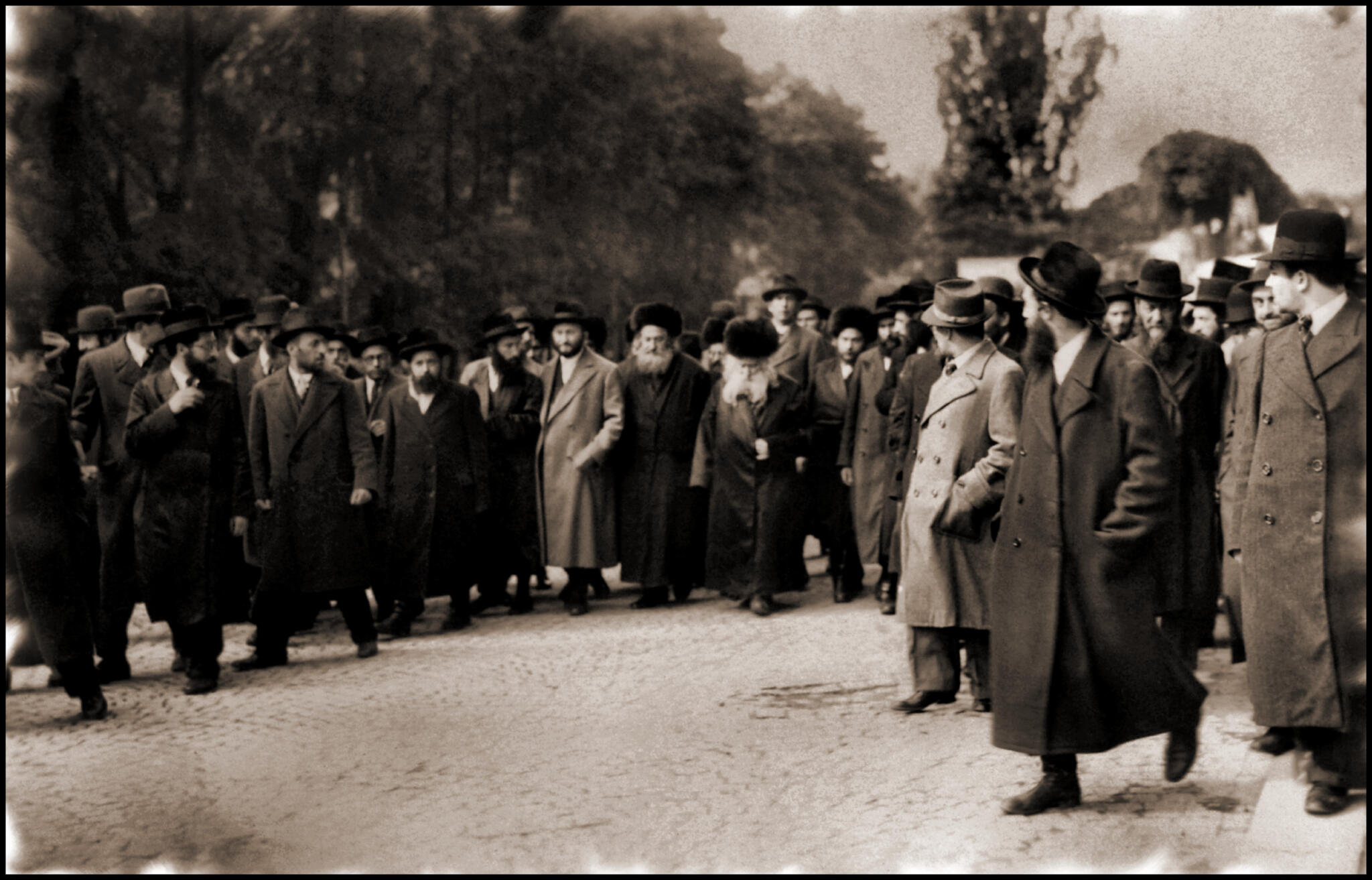
The son carrying on the legacy of his father, the Sfat Emet. The Imrei Emet with his chassidim
The 5th of Shvat Seigmarschen Camp
The 5th of Shvat Seigmarschen Camp
The 5th of Shvat meal in the Seigmarschen camp in Saxony, in the cursed Germany. It was already at the end of the war, in Shvat 5705 (1945), after about five years of hardship. The Jews were beaten and wounded in body and soul, dressed in tattered rags. Their minds were torn and blurred and their souls were broken into pieces. The disgrace of hunger, sadness and depression enveloped everything. A Jewish businessman, Shimon Zucker z"l of New York told the following: He was looking for advice on how to lift his spirits. He then asked a chasidic scholar who was there to give over a chassidic thought to revive the unhappy souls. It was Yosef Meir Seidel z"l, who was at that time one of the best Torah students of Kalisz. Yosef Meir then remembered that on that evening, it would be the 5th of Shvat. The prisoners, with effort and the remainer of their strength and will, organized a feast for less of less than a kezayit (the amount of a biblically sized olive) of food… Yosef Meir Seidel gave over ideas from the Sfat Emet. Everyone's spirits were revived. They then sang tunes that brought them back to the past. This injection of encouragement was enough for them for quite a long time and thus they were then able to overcome the despair and cruelty that were eating away at them.
A Letter to a Friend - Moshe Yaakov HaLevi Kanner - Hamodia Parshat (the weekly Torah portion) Va'era
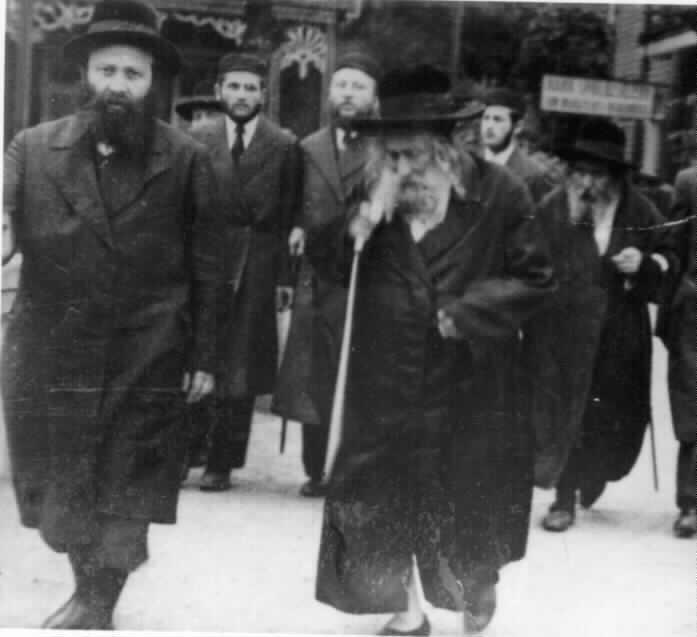
The Gerrer Rebbe, Rabbi Mordechai Alter, his son Rabbi Simcha Bunim, and his brother-in-law, the son-in-law of the Sfat Emet, Rabbi Chanoch Tzvi HaKohen Levin
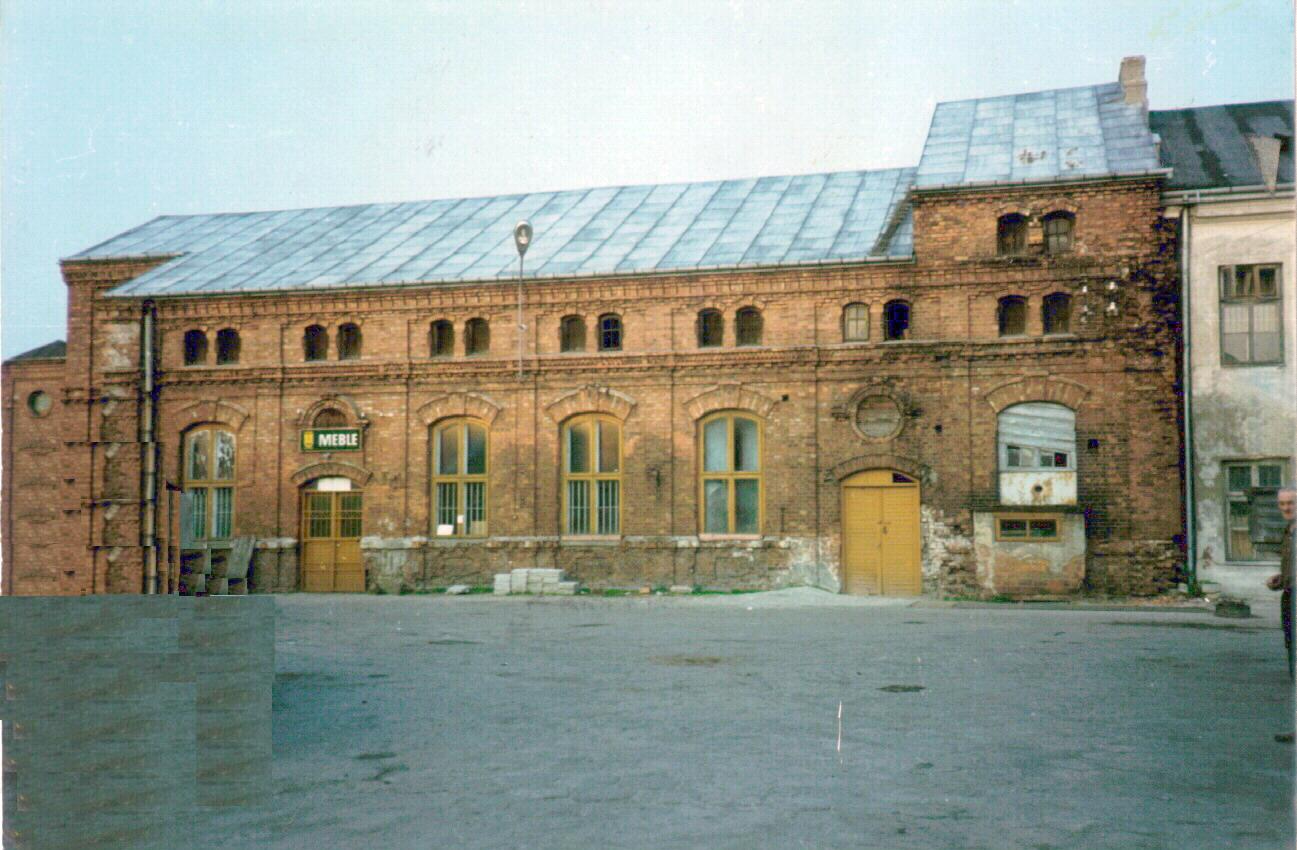
The building of the Gerrer study hall in Gur
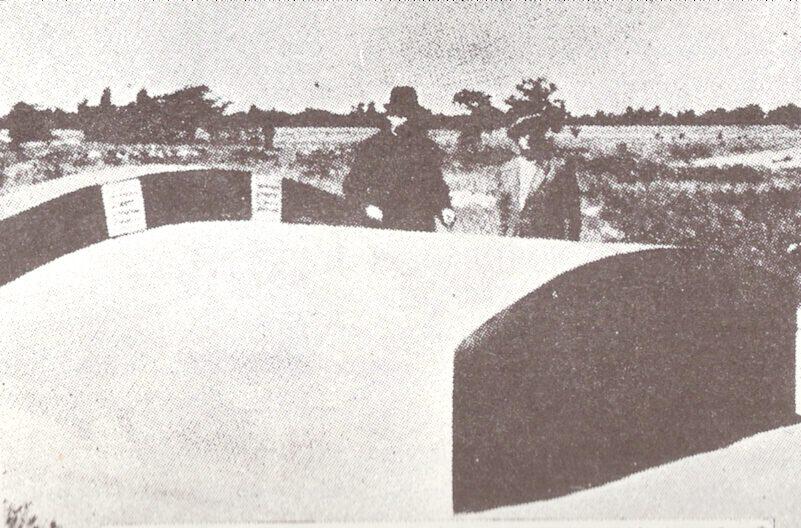
The rebuilt gravestone of the Gerrer Rebbes, Rabbi Yitzchak Meir Alter and his grandson, Rabbi Yehuda Aryeh Leib, the Sfat Emet
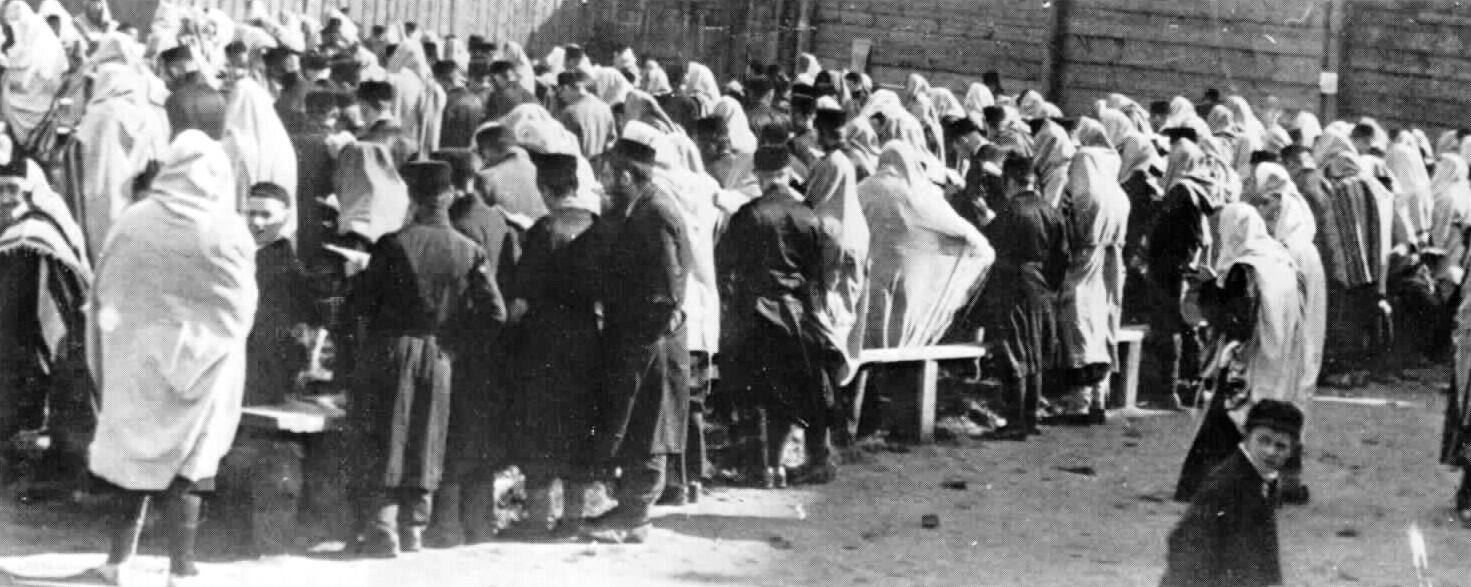
Chassidim who came to visit the rebbe, praying in the courtyard of his study hall
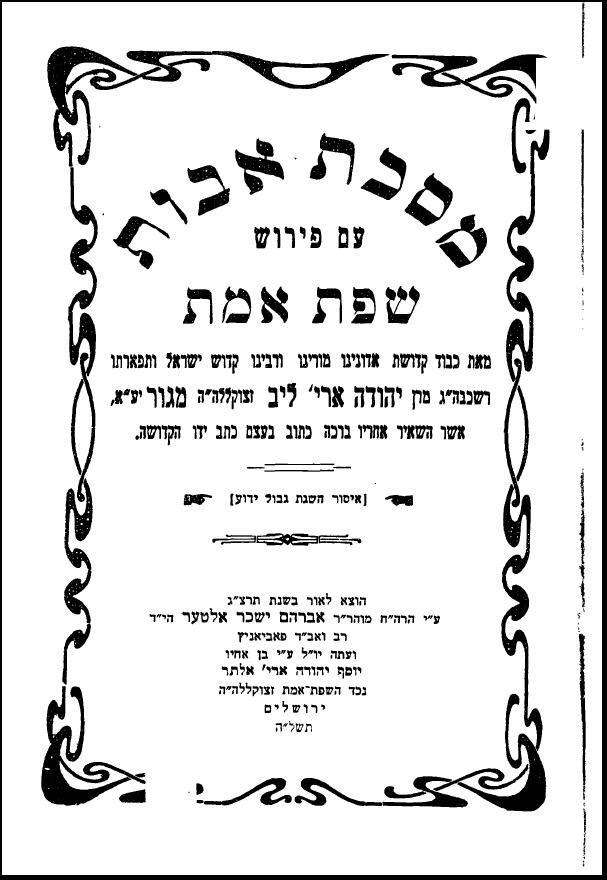
Tractate Avot (of the Mishna) with Sfat Emet’s explanations
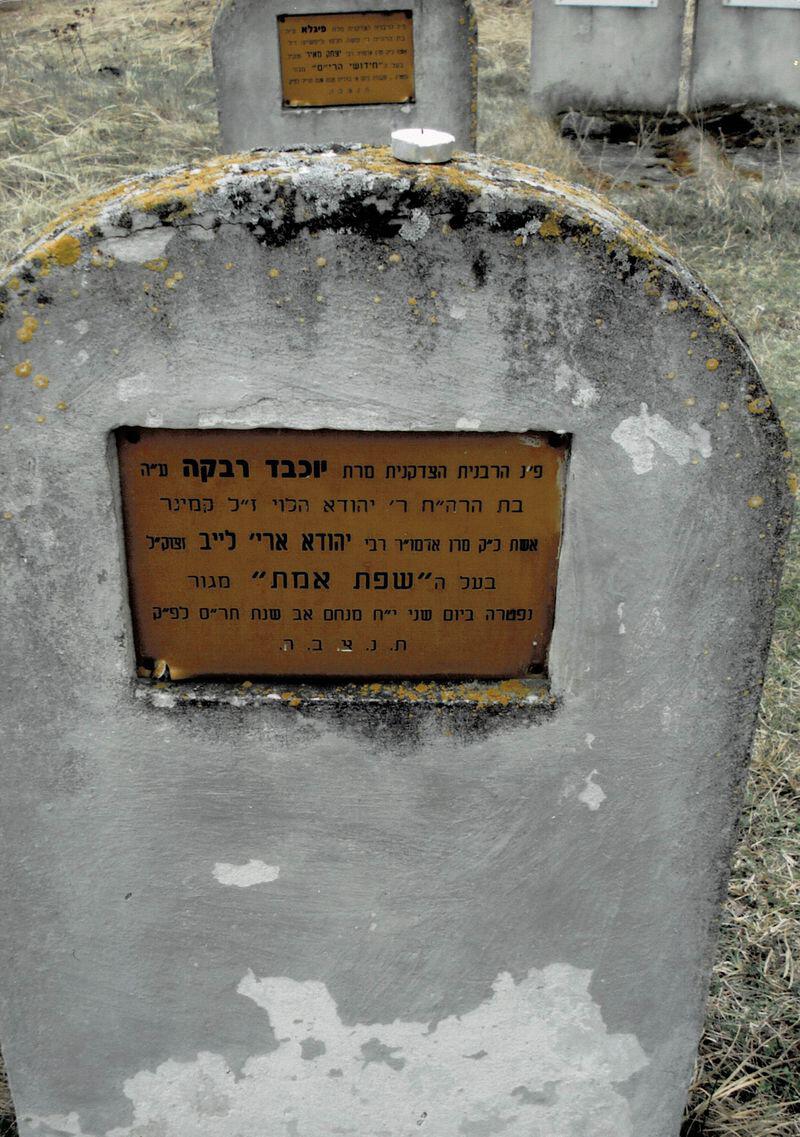
Gravestone of the Sfat Emet’s first wife, Rebbetzin Yocheved Rivka, in the Gur cemetery
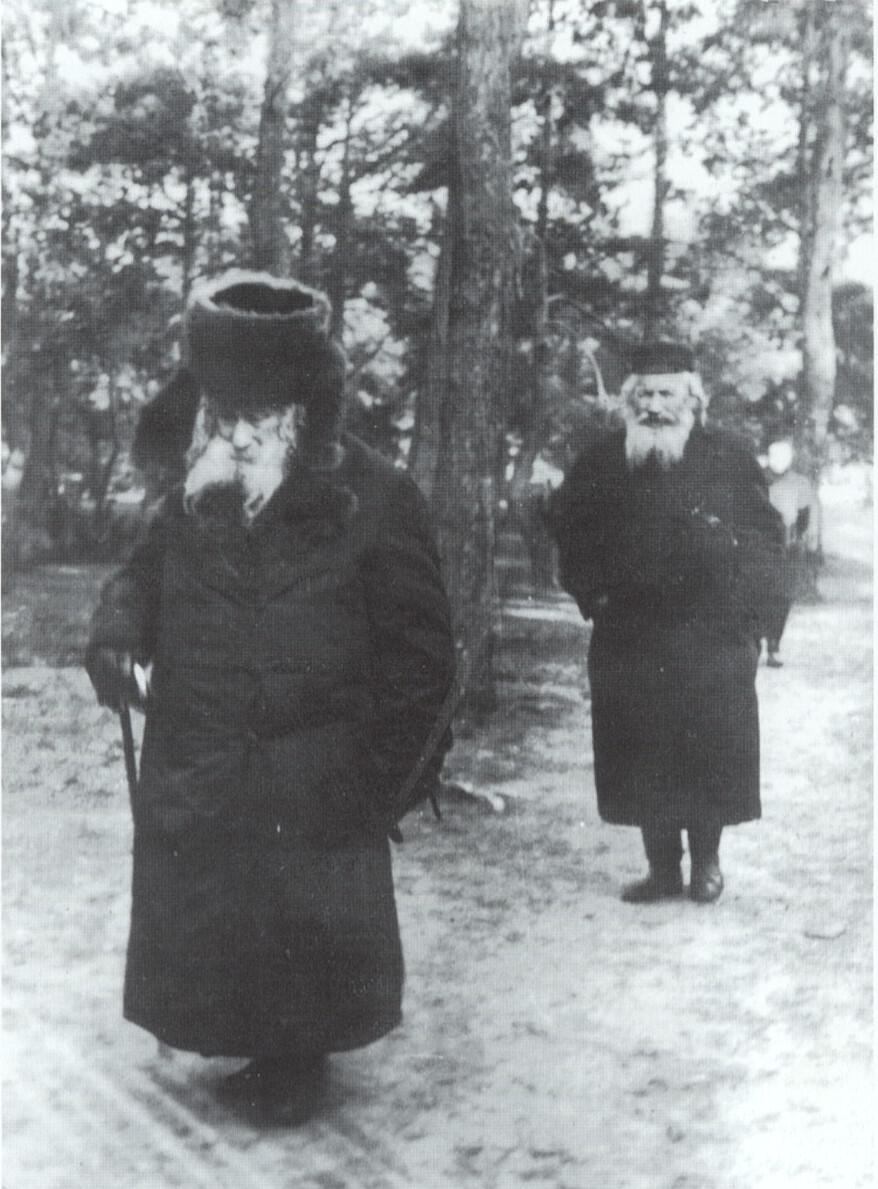
The Gerrer Rebbe, Rabbi Avraham Mordechai Alter, known as the imrei Emet. Behind him is his assistant, Bunim Lobel
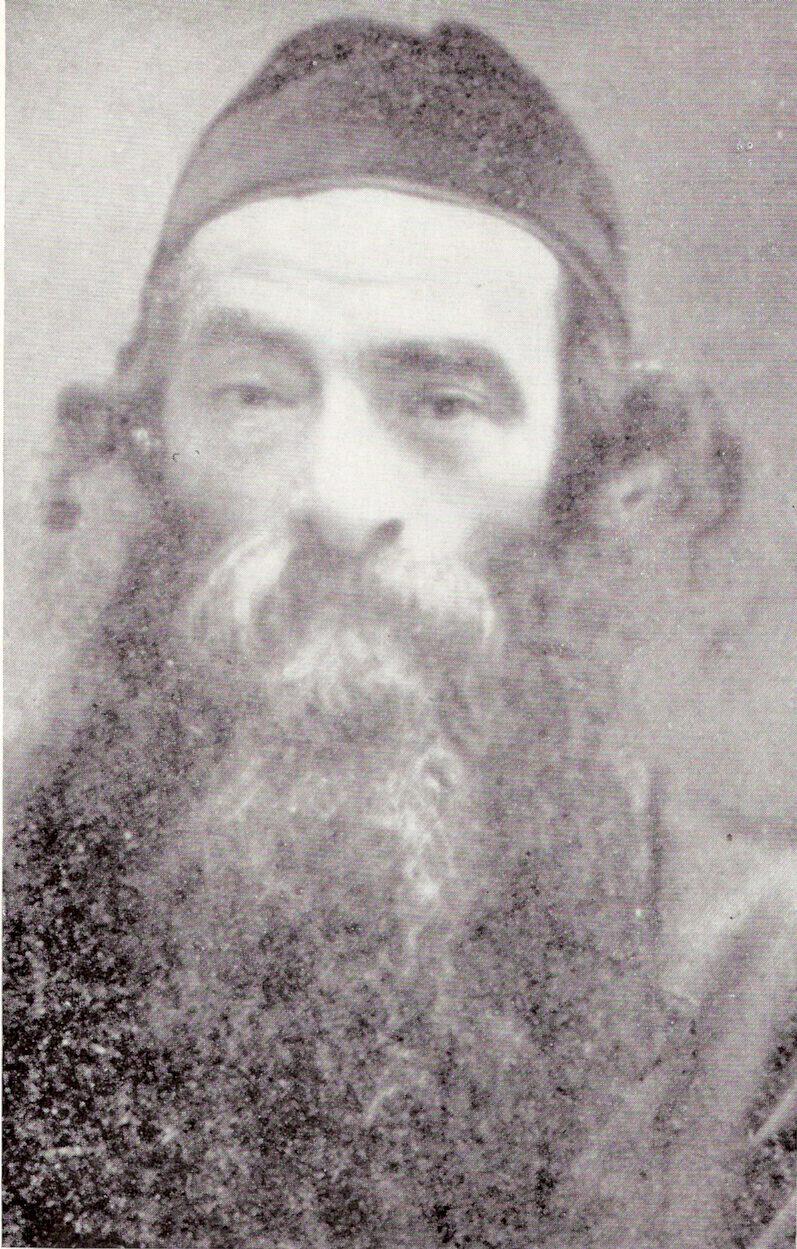
Rabbi Yaakov Meir Biderman, son-in-law of the Sfat Emet
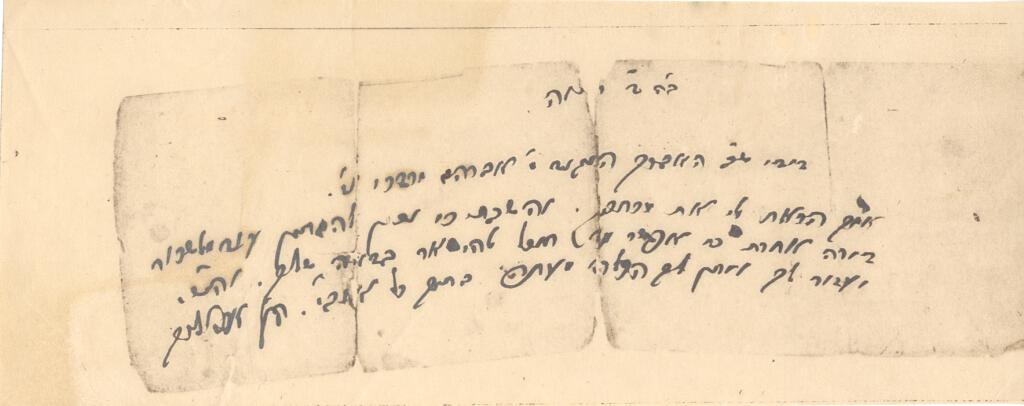
Handwriting of the Sfat Emet
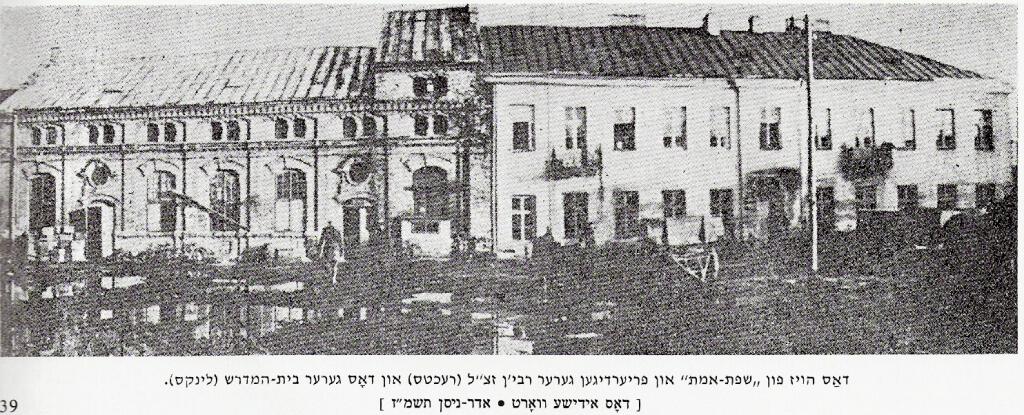
The home of the Gerrer Rebbe, Rabbi Yehuda Leib Alter, on the right, and his study hall on the left, in Gur, Poland
Yehoshua Eibeshitz – The Yahrzeit on the 5th of Shvat with Fishel Schulsinger (Wielun, Poland)

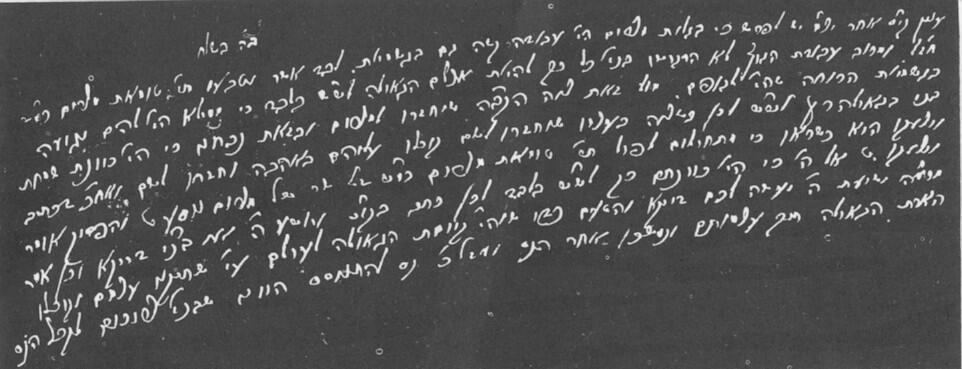
Handwriting of the Gerrer Rebbe, the Sfat Emet, Rabbi Yehuda Aryeh Leib Alter
The 5th of Shvat – The Yahrzeit of the Sfat Emet in the Schwaningen Camp
The 5th of Shvat – The Yahrzeit of the Sfat Emet in the Schwaningen Camp
It was on Sunday the Shvat 4, 5703 (January 10, 1943). We were a group of prisoners in the hospital barracks. We were all registered for the next shipment to be exterminated. We knew exactly the death that was awaiting us.
And here, on the day when we are waiting to be sent to a place from which there is no return, someone blurted out - I think it was the chasidic young man from Stawiszyn, Asher Izbitsky, and said: "According to my calculations, this evening is the 5th of Shvat, the yahrzeit of the Sfat Emet, the second Gerrer Rebbe, and it is appropriate to hold a feast in honour of the day, like a full meal at his time". It was just words without the man's intention of doing anything practical. At exactly that moment, Fishel Schulzinger entered, and caught Izbitsky's words. Fishel chuckled a little and then threw himself into the space. "Huh, did you want to ignore Fishel? To hold a feast without him? If that's the case, then on the contrary, who among you remembers the Sfat Emet?" None of us was able to give a positive answer to his rhetorical question. Then Fishel said: "Here in the camp I'm probably the only one who actually saw the Sfat Emet." "And so," Fishel continued, I will prepare a meal for the 5th of Shvat tonight." We knew Fishel and knew that he was not in the habit of joking. But a meal? Here in Schwaningen? This seemed to us to be something imaginary.
During the day the idea blossomed in our heads. But as evening fell, Fishel appeared in the "revier" (the infirmary). He came, but not empty-handed. He brought with him a few thin slices of bread, a number of roasted potatoes. And what's more important, a bottle of self-made "wine." He brought a box from the cobbler's shop, which was supposed to be used as a "table" for us, on which he spread a piece of white cloth, which he brought from the laundry. Immediately there was a festive atmosphere of the 5th of Shvat in the room. Fishel acted as the host. He told us in great detail, with a sense of nostalgia, how his father, Chaim Wolf, took him for the first time, when he was of bar mitzvah age, from Wielun to Gur.
Fishel fell silent and sank into memories of days gone by.
Fishel woke up form his reverie and said: "Well, if we have meritted to do su, let us drink "l'chaim," that the merits of the blessed Rebbe will protect us, and we will soon be redeemed. "L'chaim, Jews!" Fishel approached with a vial of wine, to everyone living in the hospital barracks, and asked him to say the blessing "Shehakol nihiyeh b'dvaro" (May everything be in His word), and put the vial to his mouth to drink "L'chaim" (he had no cups). He also brought a can that had held preserves for them to ritually wash their hands with. We also poured the water into a bowl. Everyone in the room received a slice of bread and half a roasted potato. We blessed "Hamotzi lechem min haaretz" (Who brings bread from the land). After that, we were honoured by Reuven Israel Kot of Kozminka, who was considered to be a great Torah scholar and was a Gerrer chassid, to present ideas from and about the Sfat Emet. Reuven Israel spoke. He presented ideas from the Sfat Emet about the importance of prayer, even prayer without words, prayer in the heart. A prayer that is said in times of trouble and distress. The Izbitsky brothers sang Gerrer chassidic tunes, and we blessed Gracec After Meals - something we had not done in a long time. And thus we ended the wonderful and uplifting evening in the depths of Schwaningen
(As A Juniper in the Prairie - Yehoshua Eibeshitz)
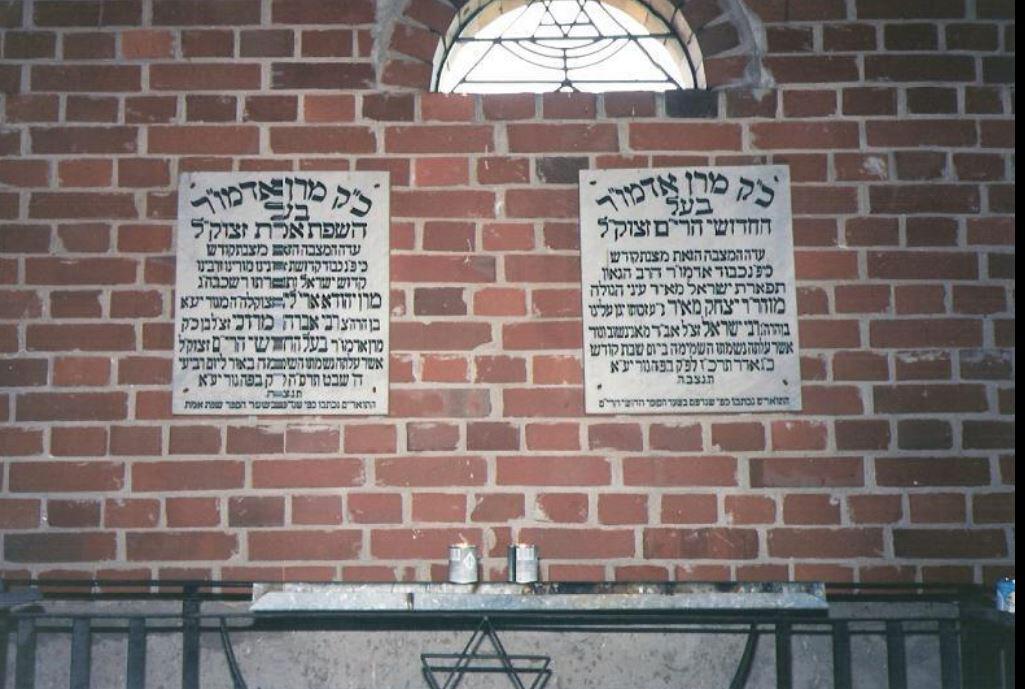
Grave marker of the Chidushei Harim and the Sfat Emet in Gur, Poland
The 5th of Shvat in the Budzyn Concentration Camp
The 5th of Shvat in the Budzyn Concentration Camp
Avraham Sontag z"l of New York, who was a Lubliner chassid, recalled how in the Valley of Tears, in Budzyn, chassidim secretly gathered to hold a meal in honour of the yahrzeit (anniversary of death) of the Sfat Emet, a meal at the edge of a sword and with longing hearts. Much bravery, courage and faith were involved in this endeavour. The organizer of the meal was Leibel Domb. Remainders of chassidim were there, scholars and achievers, but the one to give a speech was an assimilated professor from Krakow named Balaban, who most miraculously became more religiously affiliated in the horrible camp. And the professor spoke at the 5th of Shvat meal on the subject: "You live with your body." And why did they honour him, specifically, while there were chassidim present? These wise men believed that one who repents and comes closer to G-d despite the poor conditions, will be blessed. The professor fit this description, was lit up with internal fire, and that is why the chassidim asked him to deliver words at the meal… after all, he found in his mind the teachings of the Sfat Emet. And if so, he who believes while in the Valley of Death, the formerly assimilated Professor Balaban, would come to talk about the points of divinity that he had discovered in the "iron furnace" of the Budzin camp.
Letter to a Friend - Moshe Yaakov HaLevi Kanner - Hamodia, the week of Parshat (Torah portion) Va'era
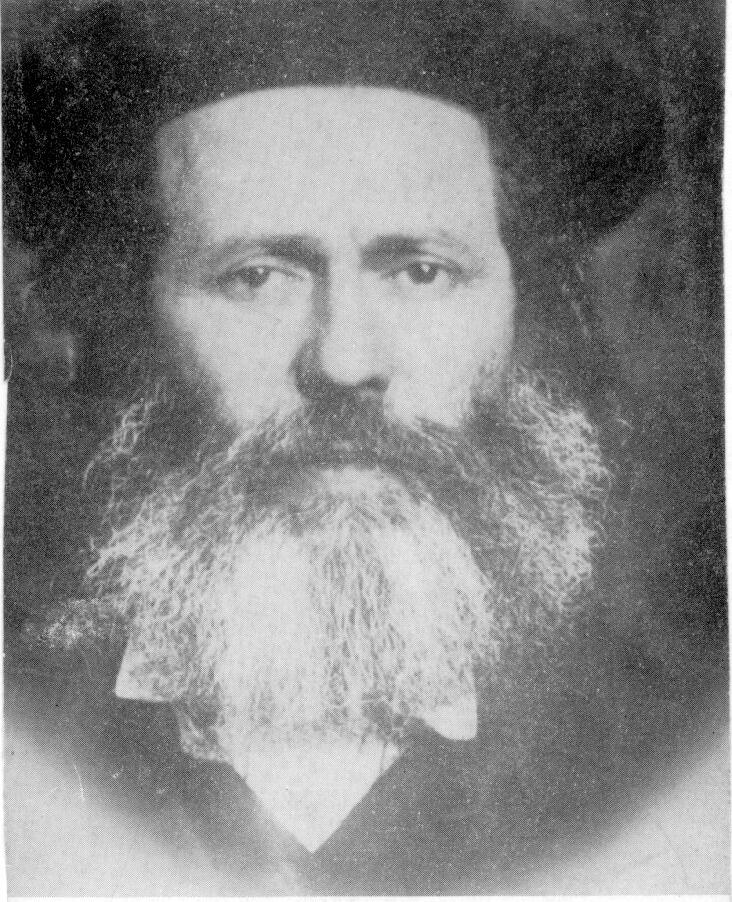
Rabbi Menachem Mendel Alter, the Rabbi of Pabianice, and the head of the Rabbi’s Association of Poland
The 5th of Shvat in the Warsaw Ghetto
The 5th of Shvat in the Warsaw Ghetto
The 5th of Shvat 5703 (1943). In the ghetto and in divided Warsaw. There, in secret, sat the holy Rabbi Avraham, the rabbi of Pabianice, may G-d avenge his blood, with a group of chassidim who did not surrender and held on to their Torah-based faith, despite their fear, with much devotion and self-sacrifice. And so testified Leibel Pinksewicz from Warsaw - Antwerp:
With the help of secret signs, I was brought into to the hiding place of the remaining chassidic Jews in the Warsaw Ghetto (in an underground bunker at 37 Nowolipki Street). Their leader at that time was Rabbi Avraham, the young rabbi of Pabianice, the son of the holy and righteous man, Mendeli. Together we were about thirty people. Many of them had grown beards which was then considered in the ghetto as a great degree of devotion. Rabbi Avraham of Pabianice was the only one bereaved of all his family members, but his face literally beamed with joy and enthusiasm as he gave over precious sayings from the Sfat Emet. For a long time we sat together and were felt exalted.
(Those Who Never Yielded)
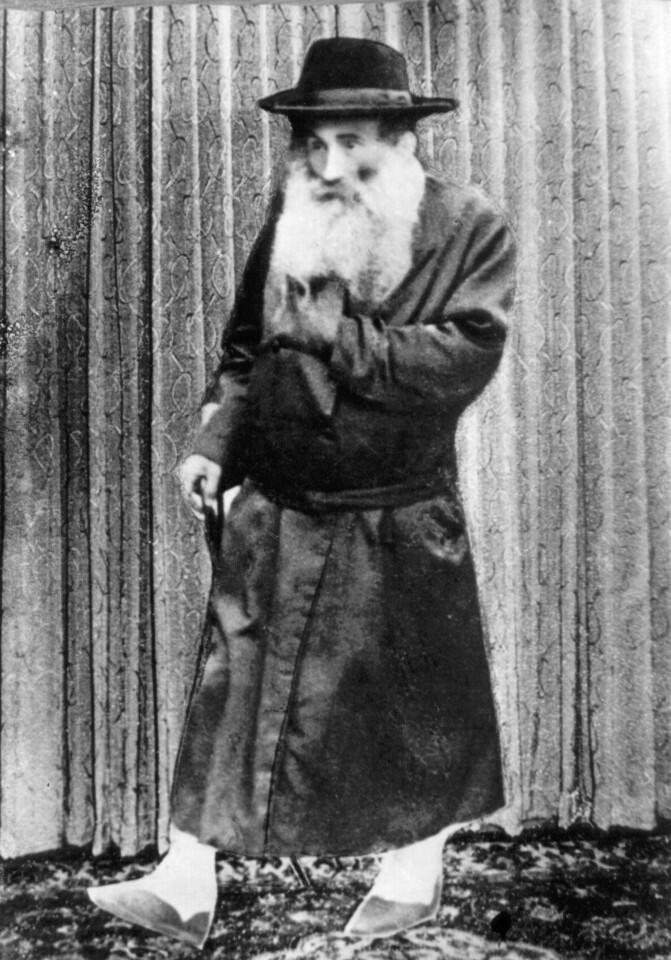
Rabbi Moshe Betzalel Alter, the son of the Sfat Emet
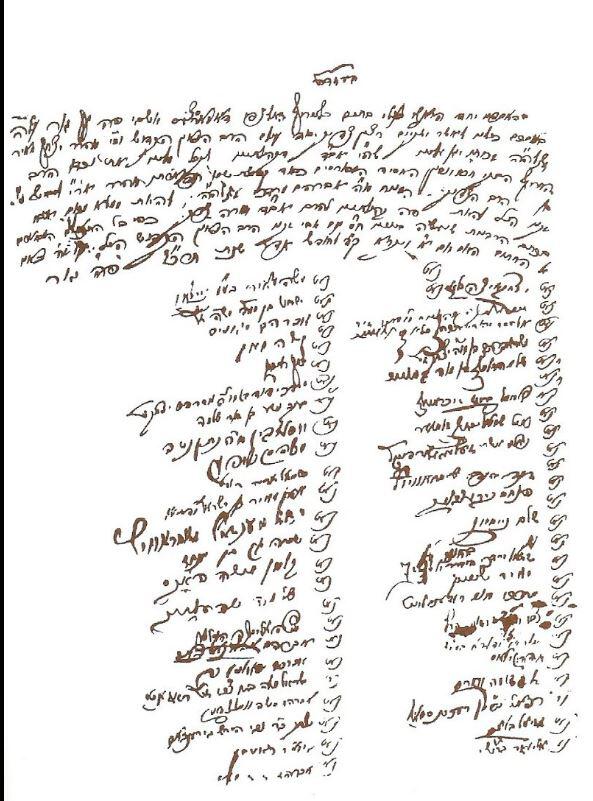
Writing of the rabbinate of the Gur community
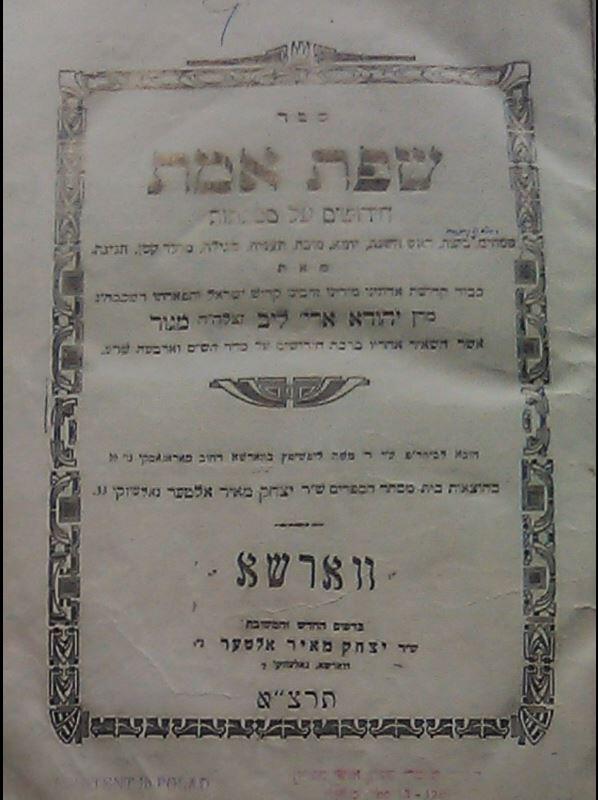
The opening page of the Sfat Emet book, 5691 (1931)
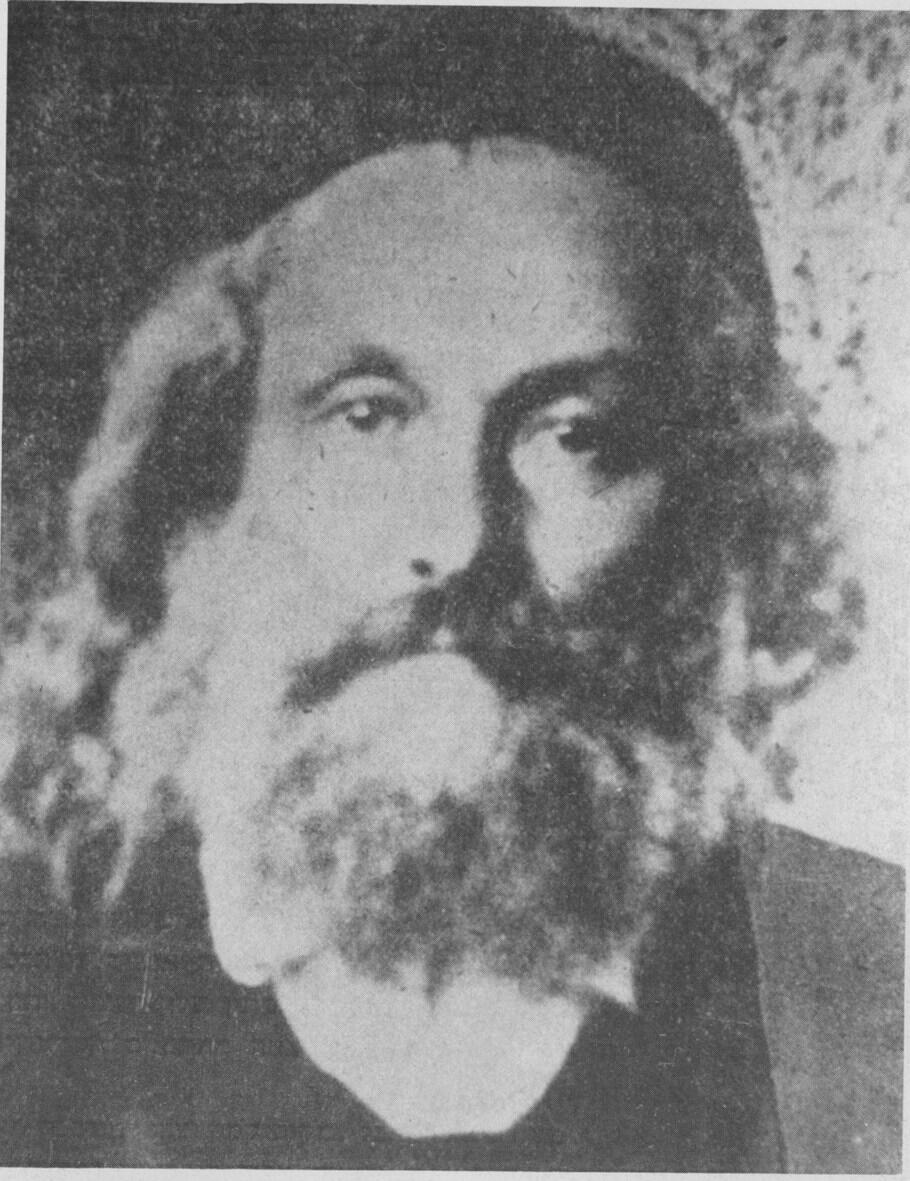
Rabbi Nechemia Alter, son of the Sfat Emet
Memories of the 5th of Shvat - The Chassidic Rabbi Ephraim Londoner
Memories of the 5th of Shvat - The Chassidic Rabbi Ephraim Londoner
Back in the year 5681 (1921), when I was still a child, I remember the features of a day two days before the 5th of Shvat. I don't know if it can be called a good day, it's a holiday, but the mental preparations for this day are something that cannot be understood. When the days before the 5th of Shvat, the yahrzeit (anniversary of death) of the Sfat Emet, arrived, people spoke about the might of the yahrzeit. When this great night came, there is a kind of stillness, out of holiness, a kind of anxiety. At the table sat men of all ages, and all of them felt the uplifting nature of the day.
The Sfat Emet said, on the week of of Vayechi Torah portion being read in 5631 (1871): "Because the creation of all men in this world was not in order to place grace and peace in this world, just the opposite, that the strong cleaving of men to G-d in life, makes the matters of the world go forward for G-d."
The way of the Sfat Emet was: Do not think you have to cancel out the world, but you have to live within this world but not stick just to it!
Bridge to a Wonderful World - The Chassidic Rabbi Ephraim Londoner


































